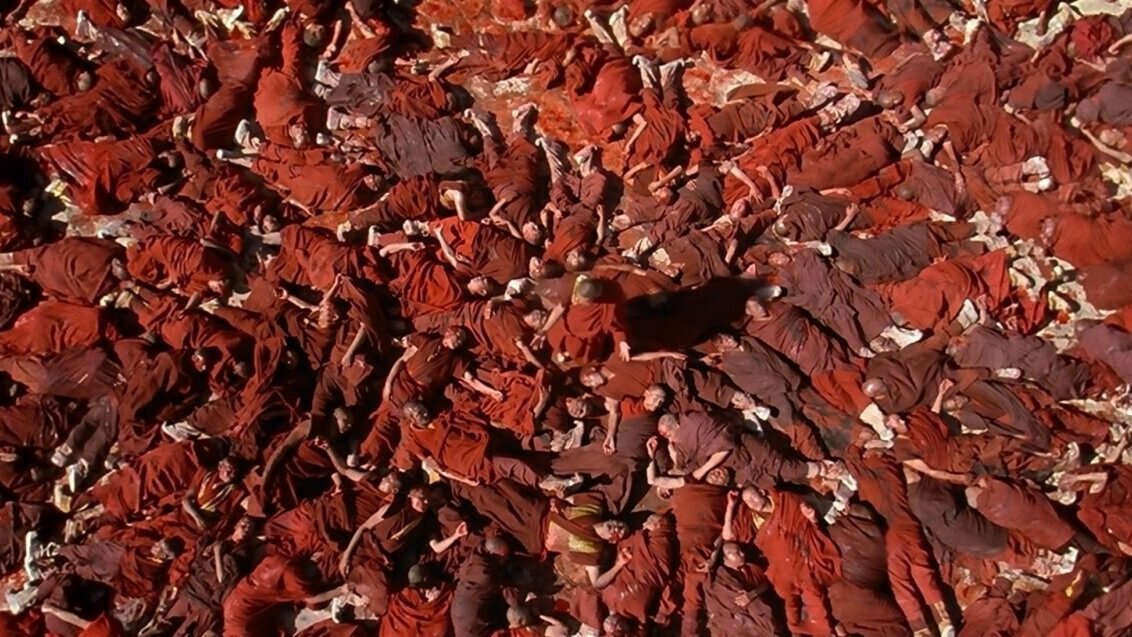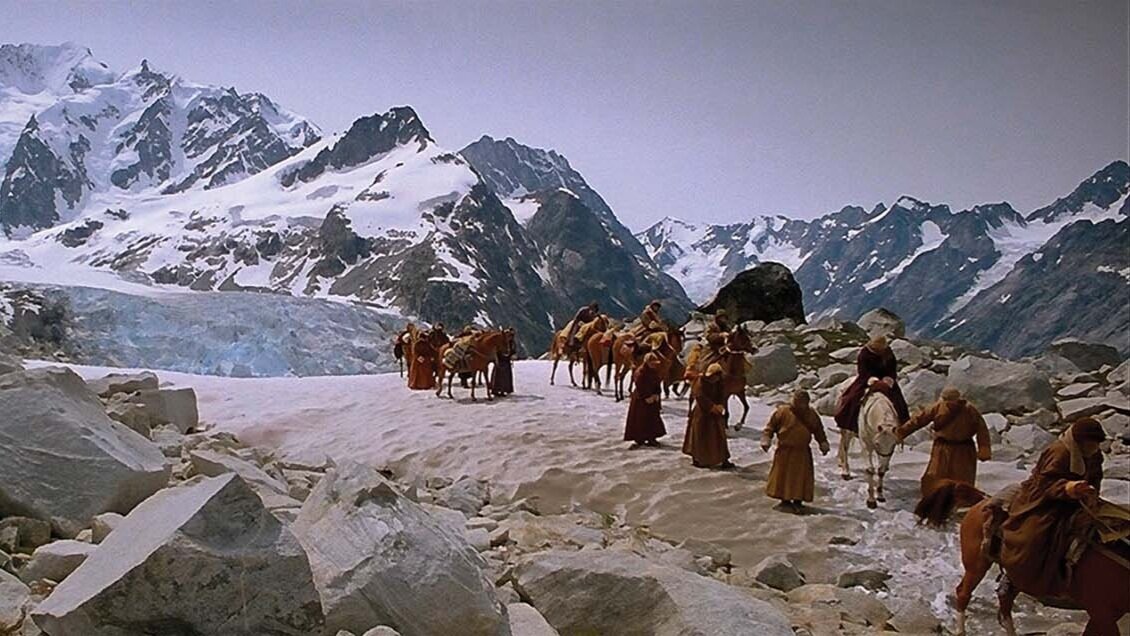Summary
The story of the Dalai Lama’s discovery, search for enlightenment, and eventual exile from Tibet.
The Film
As I prepared for Scorsese’s “The Irishman” which drops on Netflix over the holiday, “Kundun” was on my shortlist of his films that I was eager to check out for the first time. I’m not a big fan of gangster movies, as a rule, though Scorsese’s are better than most, in my opinion. I love his other films, though, such as “Silence” “Shutter Island”, and “Taxi Driver.” Having now seen “Kundun,” “Silence,” and “The Last Temptation of Christ” I’m willing to go out on a limb and say that Martin is, in the modern era, perhaps the most skilled at drawing out spiritual experiences and themes through his films.
As I begin this review, though, I do want to make one caveat. I know next to nothing about Tibet, China, and the conflict between them. I have no idea how historically accurate this film is or if any of the characters represented in it actually are the sorts of people that the film portrays them as. I also don’t really care. I intend to talk about the film as a piece of art not as an educational tool. I’m sure there are more competent people out there to make those sorts of points if that is what interests you.
What interests me about this film is the experience of something spiritual. The way that Scorsese is able to capture the essential reality of spiritual realization even as he refuses to neglect the everyday nature of it. A good example from the film is when the people trying to ascertain whether the child is the reincarnated Kundun (the name of the Dalai Lama) they recognize some birds that were around when he was born as being similar to an ancient story about the spiritual leader. No one jumps up from their seat and says “It’s a miracle” and no one falls over worshipping. There is just a nod from one monk to another. A knowing nod that says, “You saw what I saw right?”
That, in my experience, is how moments of unveiling occur. They are peaceful and quiet. We tend to want something boisterous that can’t possibly be ignored or refuted but that just isn’t how it works. These monks spend a lifetime looking for a moment of unveiling and when it comes, they simply see it for what it is, just as if they were seeing any other event in their day.
This is simply one example of the many ways that Scorsese gets his viewers to be thinking and experiencing something beyond what a typical film even tries to accomplish. You leave the film with a feeling of profound connection, longing, satisfaction, and peace which seems to penetrate everything around you. It is a spiritual experience.
This is the true reason to watch this movie. I could wax on about how beautiful the cinematography, production design, and costuming work together to form a mise en scene which is both firmly grounded in reality and somehow exotic and otherworldly at the same time but these things, in my opinion, are only so wonderful because they serve and aid that other aim.
The historical drama that plays throughout the film is remarkably simple and framed in such a way as to highlight the values of life, freedom, relationship, and community and tackles difficult contradictions such as freedom within a theocracy, physical necessity versus spiritual idealism, and predeterminism contradicting personal choice.
In many ways this film felt similar to “Gandhi” yet where that film focused so primarily on the actions of the titular character and the activism/movement he inspired, “Kundun” seeks to bring the thoughts and emotions of its protagonist into the political reality that the Dalai Lama faced. For me, that made this film stand out above many other biopics about spiritual leaders and has earned it a place in my own small film collection.
Review Written By:








